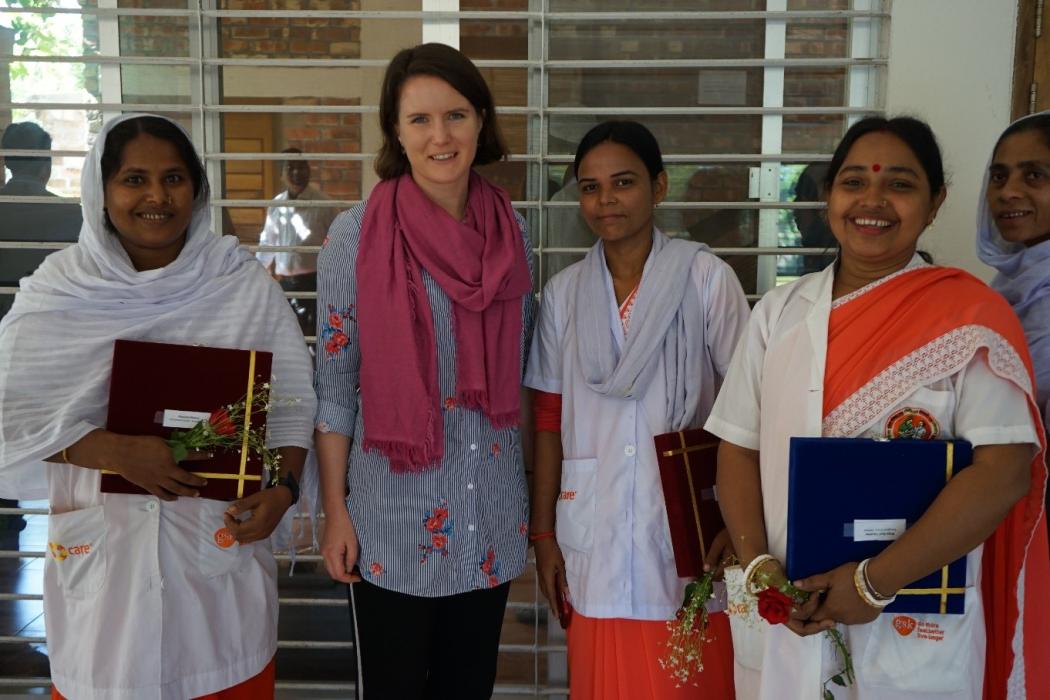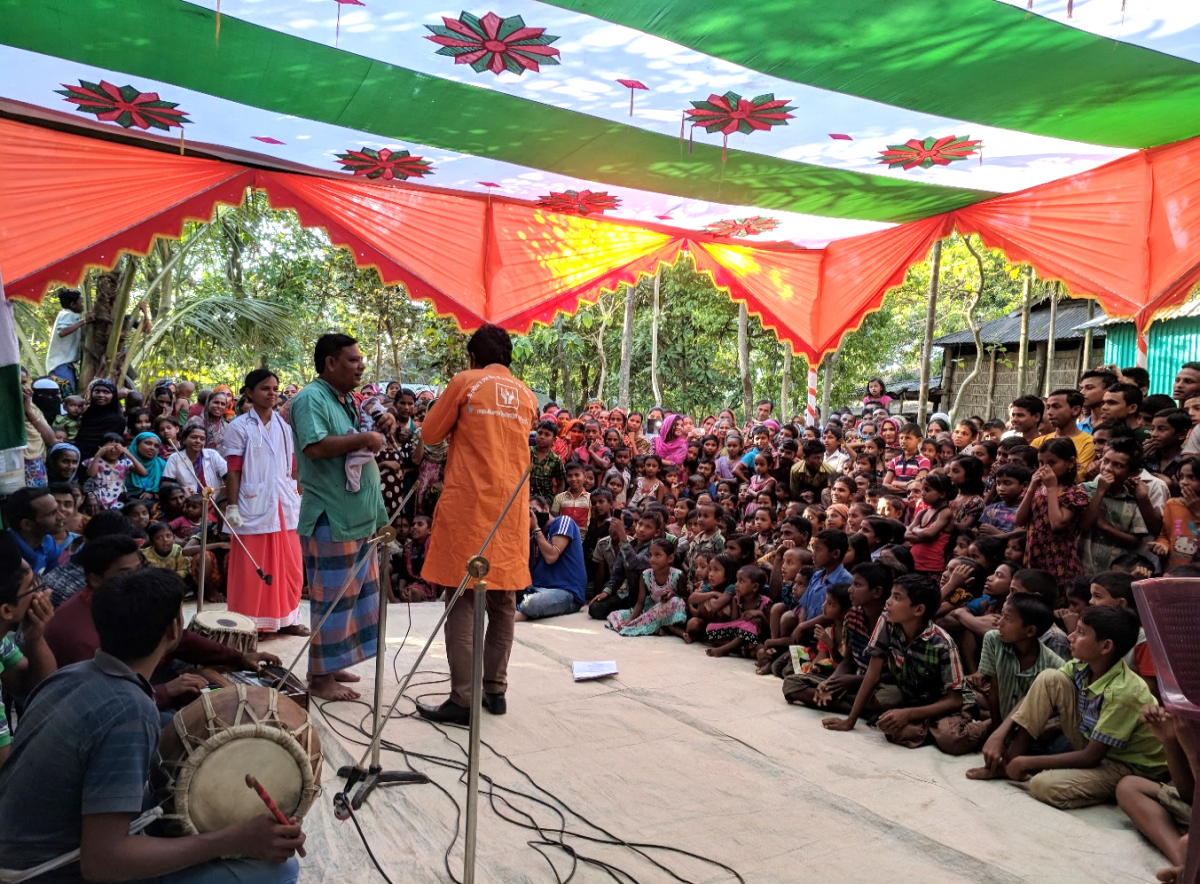Meeting the women who are changing their world

Kate Barwise reflects on her recent program visit to Bangladesh, where she was inspired by women at the frontline of community health.
By Kate Barwise, Senior Account Manager- Health, CARE International
Masuda, Shankori and Shilpi are women who are changing their world. They are entrepreneurial midwives that I met in Sunamganj, Bangladesh. They are improving health access in one of the most remote districts but where maternal and under-5 mortality rates have fallen dramatically in only a few years. These powerful women are also generating more income for their families and changing social norms.
After I spoke with them I left thinking; what can we learn from their successes and how can we help more women like them to help more communities?
The context
Sunamganj is located north-east of the country at the foothills of India. It’s underwater most the year, each morning the endless waters are full of pink lotus flowers. Albeit beautiful, Sunamganj’s floodplains make it a challenging place to become a mother. Boats are needed to move between communities, making it too expensive for many to attend health clinics. The majority rely on traditional birth attendants or give birth alone, significantly putting their lives at risk.
These entrepreneurial midwives are part of a cohort of 300 trained by CARE International and GlaxoSmithKline (GSK) to reach remote communities with skilled health services. They are now covering all of Sunamganj, a population of 2.8 million. They have delivered 29,000 babies and have provided 738,000 services. Each entrepreneurial midwife is supported by 10 community health workers who educate the community and identify the pregnant women.
Empower women
The entrepreneurial midwives are all from Sunamganj and are sufficiently educated to attend the training, most are married and have children. Becoming an entrepreneurial midwife is an opportunity for these women to have an income and achievements beyond their home life, which is changing local social norms. The project team regularly engages with their families to highlight the importance of their work. Family support is vital for the entrepreneurial midwives’ success as their families may then care for the children when the entrepreneurial midwives are needed in the community.
The entrepreneurial midwives are trained as skilled birth attendants, which is endorsed by the Government of Bangladesh. All 300 have also recently received training to offer additional services for diabetes and hypertension which are becoming increasingly common in this region.
They are also trained to be entrepreneurs, learning leadership and business skills, since they earn money by charging a small fee for their services. The fees are set by the local government and community. If someone cannot afford to pay, the local community support system or local government may help. The average monthly earnings of these skilled birth attendants is rising, generating an average monthly income of £34, a significant sum in rural Bangladesh. This average includes entrepreneurial midwives that are newly graduated and some earn 3 times this, allowing the women to buy land and send their children to school.
Involve the Community

Shankkori being introduced in a folk song to a large crowd in Sreepur village, Bangladesh. Courtesy CARE.
Masuda said that initially when she started working two years ago it was hard to gain community trust and she was only able to provide few services. The availability of healthcare services is key, but communities need to have trust in the services provided. The project has set up a network of 318 community support systems who are trained to identify and tackle local health and social problems such as prenatal check-up attendance and tackling child marriage as well as working with the community health workers and entrepreneurial midwives. After Masuda worked with the local government and community support systems the communities grew in confidence and she now has high demand for her services.
I watched Shankori in a ‘folk song’, even though I couldn’t follow the lyrics the play was really entertaining and drew in a packed audience. It’s an effective way to introduce them to their new entrepreneurial midwife, acting out how she can help when a baby is born and dispelling myths, such as that eating less during pregnancy allows more room for a baby.
Invest in women
Since 2010 GSK’s Frontline Health Worker Initiative, in partnership with CARE, Save the Children and Amref, has trained 67,000 frontline health workers across Asia and Africa. This flagship programme in Bangladesh has been shortlisted for the Global Good Award for Best International Sustainability Community. Building a model that is community-led, where entrepreneurial midwives are supported by the community health workers and community support system and can build trust in the communities they serve, has been vital to ensuring sustainability.
I asked Shilpi how she felt being on call to the community all the time, she responded; ‘I don’t mind. I feel proud to be doing this work, I’m here with my communities. What I would like to know is what more I can learn to help the mothers and children.’ The project is extending two more years until 2020 to further build the skills of midwives, improve their income and further ensure project sustainability.
We must invest in empowering more women like Shilpi, Shankori and Masuda with a variety of different skills and find joint solutions together with their communities to have a chance to continue reducing the number of women and children dying unnecessarily in remote communities across the world.
